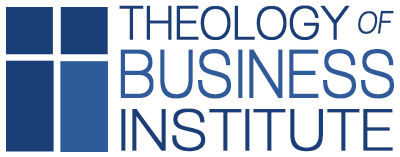4 Reasons Secular Humanism Is Bad for Business

 In his 1969 Harvard Business Review article, “Is Business Bluffing Ethical,” Albert Carr suggested that those who “win” in business are not those who seek to apply Christian ethics (e.g. the Golden Rule, etc.) but those who approach business as they would a game of poker. He argued that “conscious misstatements, concealment of pertinent facts, or exaggeration” are all permissible in the business “game” just as they are in the game of poker.
In his 1969 Harvard Business Review article, “Is Business Bluffing Ethical,” Albert Carr suggested that those who “win” in business are not those who seek to apply Christian ethics (e.g. the Golden Rule, etc.) but those who approach business as they would a game of poker. He argued that “conscious misstatements, concealment of pertinent facts, or exaggeration” are all permissible in the business “game” just as they are in the game of poker.
Carr found no fault in the CEO who allowed his company to sell mouthwash made with a cheap and possibly harmful form of alcohol because the cost savings made the company more profitable. The CEO testified in Washington,
We don’t make the laws. We obey them. Then why do we have to put up with this ‘holier than thou’ talk about ethics? It’s sheer hypocrisy. We’re not in business to promote ethics.”
Carr’s argument is based on the unspoken assumption that the purpose of business is to worship one’s own self-interests through the strategic, amoral pursuit of profit—as long as the methods are legal.
For a follower of Jesus, on the other hand, the purpose of business is to love God and love others (Mark 12:30-31).
Carr’s suggested value system—determined only by what is legal and financially profitable—is consistent with the religion of Secular Humanism. In this religion, which masquerades as a “non-religion,” its followers—both rich and poor alike—have the same goal in mind: to worship their own self-interests. Secular Humanism is as ancient and sly as sin itself and is a religion we all have a tendency to follow.
Here are four reasons why Secular Humanism is bad for business:
1: No Trust
The foundation of a thriving marketplace is trust. Over time, people only do business with people they trust. The perceived value of products, services, and currencies rises and falls according to the level at which people trust them.
If the objective of one’s religion is the worship of his own self-interests, he cannot be trusted because his ethics will never be consistent. A short-lived deal may be struck, but the relationship will collapse shortly thereafter. His ethics always will be determined by what seems to be popular, profitable, and legal in the culture… always with the highest goal of promoting his self-interests.
The Secular Humanist cannot be trusted because his ultimate goal is to glorify himself… not his Creator.
2: No Contentment
When asked how much it would take to make a man happy, industrialist John D. Rockefeller answered, “Just a little bit more.”
Discontentment is a dangerous thing. Regardless of one’s economic status, discontentment results in fear, jealousy, envy, greed, and depression. As individuals live with discontentment, people get taken advantage of, and entire economies end up in recessions and depressions.
As recorded in the Bible, King David fell into Secular Humanism when he took a census merely to worship his own ego (see 1 Chronicles 21 and article, “Sinful Accounting: How to Break Free from Stat-Checking Addiction”). The result was a plague that took the lives of 70,000 men of Israel.
Discontentment is driven by the worship of our self-interests. In business, it often expresses itself as “the love of money.” The Bible tells us, “He who loves money will not be satisfied with money, nor he who loves abundance with his income” (Ecc. 5:10).
We all want to be content and happy. Secular Humanism leaves us always wanting more of what never can satisfy.
3: No Rest
Where there is discontentment among business professionals, there is ceaseless striving to do more, achieve more, and gain more. In my own professional life, I have found this striving to be exhausting. For many business professionals, this leads to burnout, family breakdown, health decline, and hopelessness.
In the midst of my ceaseless striving several years ago, I became captivated by this verse: “Cease striving and know that I am God” (Psalms 46:10). It then occurred to me why “honor the Sabbath and keep it holy” is one of the Ten Commandments (Exodus 20:8-11).
Observing the Sabbath Day—that is, refraining from work for one full day each week—is not about proving something to God. Instead, as Jesus said, “The Sabbath was made for man, and not man for the Sabbath” (Mark 2:27).
If you haven’t been already, try taking one day of rest from your work each week. It doesn’t matter which day. Just make it consistent. Making appointments to relax and to spend personal time with God each day, week, month, and year will strengthen your body and will enhance the productivity of your life.
Most importantly, taking a Sabbath Day of rest each week will enhance the quality of your relationship with God. As God said to Moses, “My Presence will go with you, and I will give you rest” (Exod. 33:14). When God’s Presence is with us, we will find rest. To be sure, rest is something that we must find; it won’t happen unless we make it a top priority.
Not only will rest make you more effective in the marketplace, it will enable you to discover the depth of your identity as a child of God… not a slave to the marketplace.
4: No Relationship
When our aim is to worship our own self-interests, we know innately that we are alone in this effort. Yet God never intended for us to do business alone. He wants to partner with us. He wants us to have a relationship with Him.
Partnering with God in business is about more than applying practical business wisdom from the Bible. Christians and non-Christians alike can apply the Bible’s timeless business principles and experience the benefits. Therefore, it’s possible to take business principles from the Bible—and apply them with selfish objectives—and leave God out of your business. God is a person, not merely a set of timeless principles.
Pursuing a deeper relationship with God is the only way to remain free from the self-centered value system of Secular Humanism that is advancing rapidly in our society. Without partnering with God in business, we will look more like Secular Humanists than Christians, seeking to worship our own self-interests.



